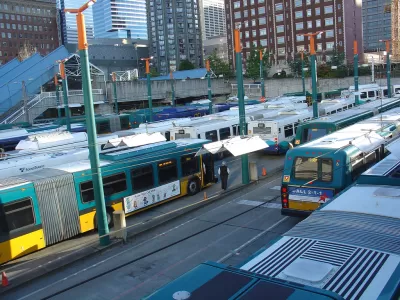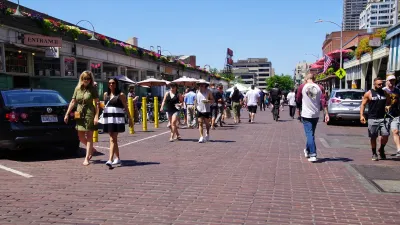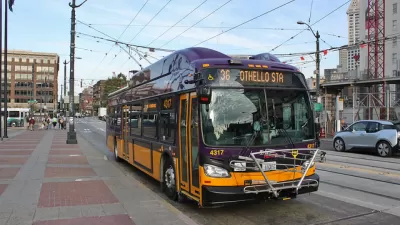The victory for homeless and very low-income transit riders is a reminder of the importance of grassroots organizing.

Last year, organizations in King County provided more than 1.4 million Metro tickets to homeless people, refugees, and other low-income people struggling to afford trips to shelters, job centers, and other crucial resources.
Metro's Human Services Ticket Program, which partially subsidizes tickets for human services agencies to distribute, launched 25 years ago after ongoing public demonstrations by the agencies and their clients. And in September, ongoing organizing once again motivated King County Council to unanimously move to strengthen the program.
Katie Wilson of Seattle's Transit Riders Union explains in the Seattle Transit Blog that rising housing costs and homelessness rates have drastically increased the need for tickets. But a cap on allocations has limited the number of tickets available, and fare increases have made even the discounted price too much for some organizations.
The problem may have continued to get worse, Wilson writes, if not for a dedicated grassroots effort to get the Council to address it. Now, Metro will raise the cap on ticket allocations and cut the price of tickets in half, as well as collaborate with other county stakeholders to fulfill "transit’s role in contributing to the social safety net for the lowest income residents."
In addition to more comprehensive local measures, Wilson turns an eye to big-picture solutions like taking on the State Legislature and integrating the region's transit system—noting:
Many of the hundreds of low-income people who have participated in struggles for affordable transit would love to take on these broader transformative issues, if only they didn’t have to be more immediately concerned about getting from A to B.
FULL STORY: Big Wins for Very Low-Income and Homeless Transit Riders

Study: Maui’s Plan to Convert Vacation Rentals to Long-Term Housing Could Cause Nearly $1 Billion Economic Loss
The plan would reduce visitor accommodation by 25,% resulting in 1,900 jobs lost.

North Texas Transit Leaders Tout Benefits of TOD for Growing Region
At a summit focused on transit-oriented development, policymakers discussed how North Texas’ expanded light rail system can serve as a tool for economic growth.

Using Old Oil and Gas Wells for Green Energy Storage
Penn State researchers have found that repurposing abandoned oil and gas wells for geothermal-assisted compressed-air energy storage can boost efficiency, reduce environmental risks, and support clean energy and job transitions.

Santa Barbara Could Build Housing on County Land
County supervisors moved forward a proposal to build workforce housing on two county-owned parcels.

San Mateo Formally Opposes Freeway Project
The city council will send a letter to Caltrans urging the agency to reconsider a plan to expand the 101 through the city of San Mateo.

A Bronx Community Fights to Have its Voice Heard
After organizing and giving input for decades, the community around the Kingsbridge Armory might actually see it redeveloped — and they want to continue to have a say in how it goes.
Urban Design for Planners 1: Software Tools
This six-course series explores essential urban design concepts using open source software and equips planners with the tools they need to participate fully in the urban design process.
Planning for Universal Design
Learn the tools for implementing Universal Design in planning regulations.
Ascent Environmental
Borough of Carlisle
Institute for Housing and Urban Development Studies (IHS)
City of Grandview
Harvard GSD Executive Education
Toledo-Lucas County Plan Commissions
Salt Lake City
NYU Wagner Graduate School of Public Service





























